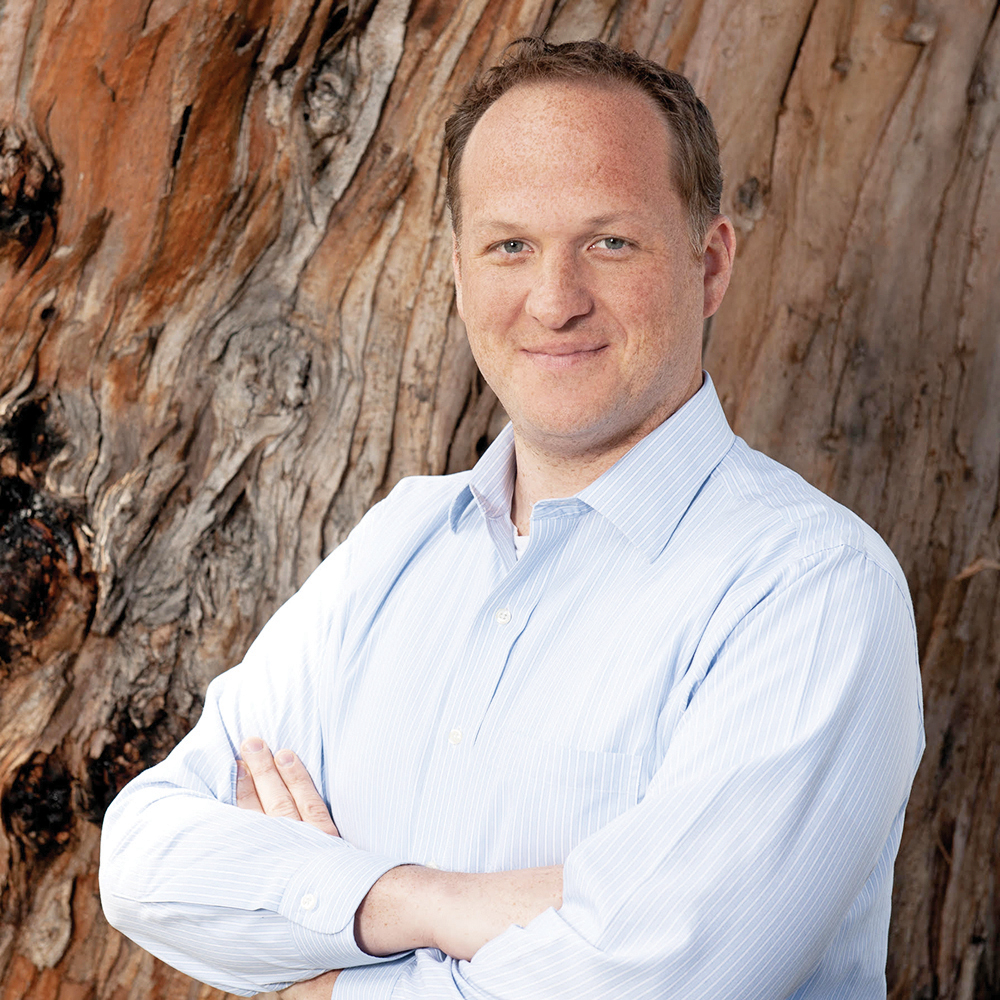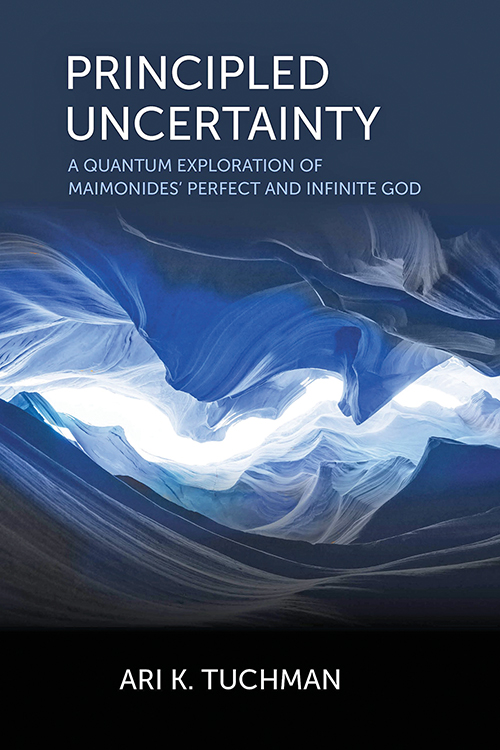
Reviewing: “Principled Uncertainty: A Quantum Exploration of Maimonides’ Perfect and Infinite God,” by Ari Tuchman. Kodesh Press.
Ari Tuchman’s recent book, “Principled Uncertainty: A Quantum Exploration of Maimonides’ Perfect and Infinite God,” is a quantum physicist’s attempt to “advocate for the need to leverage scientific knowledge in pursuit of theology.” While science and theology have been notoriously hard to integrate over the years, relegating them to mutually exclusive spheres of influence in which “science is left to pursue an empirical study of the universe based on observational evidence, and religion remains focused on understanding life’s meaning based on belief in God” causes the pursuit of Divine truths itself to suffer.
Allowing science to inform theology in a significant way, though, renders theological assumptions falsifiable. If one allows science to prove God’s existence, updated understandings of science are equally capable of disproving it. For this reason, Rabbi Jonathan Sacks wrote in “The Great Partnership” that “science gives us a sense of wonder. It does not disclose the source and origin of that wonder … contemplation of the natural universe is an intimation, no more and no less, of the presence of a vast intelligence at work in the universe.”
Tuchman takes a similar approach, writing that “science is not designed to provide proof or refutation of God’s existence. However, scientific understanding can provide a metaphorical framework for pursuing a personal God once faith is already established.” In other words, faith and science are separate, but if one already has faith, it is ideal for it to be “rational, defined by the ability to maintain both logical self-consistency and scientific compatibility.”

“Principled Uncertainty,” then, does not seek to create converts as much as it seeks to defend the commitment of the already faithful. This approach is ideal for what Tuchman calls the rational believer, who
“does not accept explicit contradictions that threaten her sense of logic and scientific knowledge of the world. However, she likewise is not looking to dismiss the divine from her daily life nor eradicate its presence from her understanding of spiritual cannon. She is rational in that she does not dismiss what she knows to be scientifically or logically true in favor of religious dogma. Rather, she strives to apply her knowledge of the world to better understand what is religiously expected of her. Her scientific knowledge initially impacts her actions and her religious scholarship, but ultimately is most critical in how it can influence her beliefs and deepen her relationship with God.”
For this rational believer, scientific insight can a) “assist in her functional practice and adherence to the commandments,” b) provide her “with novel interpretations of esoteric passages in the Bible [and] explain aspects of Biblical miracles by leveraging natural phenomena,” and c) assist in “fostering a sense of awe and aiding in pursuit of understanding the Divine.”
Based on his field of expertise, Tuchman then argues that “the facts that quantum mechanics have uncovered about how our universe operates can be illuminating in providing analogies to help in pursuit of God.” As such, his book is dedicated to “learning from scientific examples, with an emphasis on extracting detailed analogies from quantum mechanics that are intended to help pursue an understanding of God.” His confidence in such an endeavor is based on the assumption that a quantum universe itself comes with religious undertones:
“While religion postulates a deeper reality hidden from human perception, quantum mechanics posits a description of reality that cannot be directly observed (e.g., the wavefunction in the Copenhagen interpretation). Religion often advocates for a Divine presence that can observe and interact with this hidden world, and quantum mechanics theorizes an ‘Observer,’ responsible for influencing the trajectories of all particles. While foundational interpretations of quantum mechanics do not require this Observer to be conscious, the Observer is nevertheless responsible for the physical world that humanity experiences—blurring the line between underlying quantum states and their collapse into classical observables. Scientifically, this observational role need not be random nor unconscious, but could be intentional, which would then provide the possibility for religious chords. The semantic distance to render such an intentional ‘Observer’—who impacts the entire universe and causes particles to choose trajectories—coterminous with ‘God’ is vanishingly small.”
Such a view is not universal in the scientific community, though. Atheist cosmologist Sean Carroll notes that “any discussion of mental aspects of ontology must specify one of two alternatives: changing the known laws of physics, or positing that these aspects exert no causal influence over physical behavior.” Tuchman’s theology is a Maimonidean one, which is not only mental, but also understands God to be Perfect, Omnipotent, and Infinite. For his book to be compelling, then, he must demonstrate how such a God actually interacts with the laws of physics.
Tuchman does this by first laying out four principles about miracles that any attempted scientific explanation must be consistent with:
- One is permitted to request miracles from God that can be understood within the parameters of natural law.
- Miracles are extremely rare.
- Miracles are intrinsic to and do not change the fundamental laws of physics.
- Miracles are the will of God, expressing His direct involvement with humanity and the physical world.
Tuchman then suggests the following mechanism for such miracles:
“a quantum mechanical description of reality includes superpositions of states, which normally evolve due to environmentally induced wavefunction collapse and decoherence. Therefore, the most likely states within the superposition are the ones usually experienced in the physical world … However, some of the states within the superposition have extremely small but not-zero probabilities. These unlikely states can be amplified with the correct form of observation (also known as measurement). This collapse and decoherence due to an intentional measurement can be analogously equated with Divine observation.”
In other words, God’s ability to see into the quantum mechanical blueprint of reality would allow Him to have an impact on certain things that happen in the world. Since quantum mechanics is based on probability, though, there would never be an absolute guarantee of the miracle happening. According to Tuchman, then, “God could induce sequential measurements to an exact time of His choosing to render a favorable outcome; the probability of success for the observation to affect a miracle could asymptotically approach 100%, but it would not be exactly 100%. Thus, it is possible, albeit improbable, that even the prayers of the most righteous could appear to have gone unanswered.”
This theology of prayer succeeds at being both consistent with quantum physics, though it obviously sacrifices the view that all prayers can and will be answered by God. Many have noted that the price of aligning religion and science often involves concessions, and readers will have to decide for themselves whether this particular concession is a deal-breaker for their theology.
The rest of Tuchman’s book demonstrates how we can understand God’s other notable characteristics in conversation with other ideas in quantum mechanics. This review will not spoil that discussion, but this is a fascinating read that seamlessly blends scientific rigor with theological insight and religious passion. If you’re interested in science, theology or the interplay between the two, then Ari Tuchman’s “Principled Uncertainty” is a must-read.
Steven Gotlib is director of JET Ottawa’s Capital Jewish Experience and interim rabbi at the Young Israel of Ottawa.








